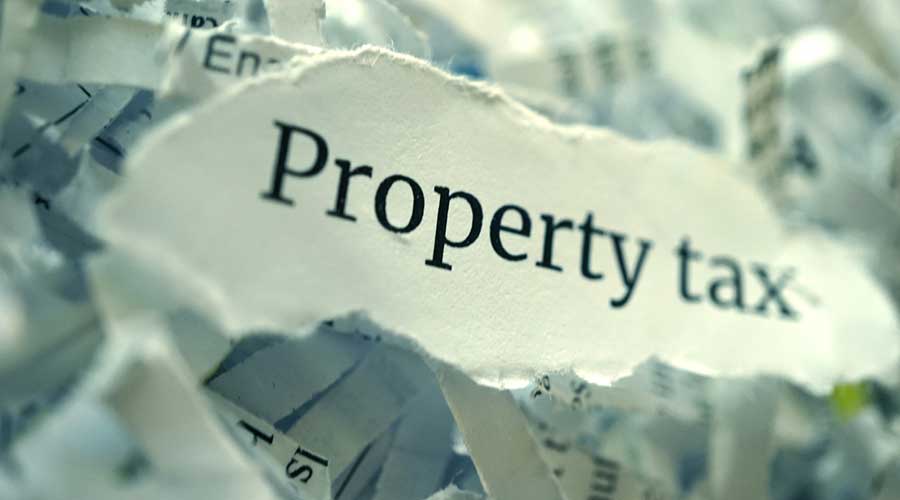Most property owners recognize that the real estate taxes they pay are directly tied to the county auditor’s assessed value of their property. What most do not understand, however, is how those values are determined. In short, auditors in Ohio are tasked with reappraising all real estate in the county ever six years, with “updates” every three years. R.C. 5715.24.
As one might imagine, this is not an easy task, especially in more populous counties. Auditors use a variety of methods and technologies to assist them with appraising and updating the values in their counties. One of the most common and most accurate methods utilized is an examination of recent sales. This does not refer to recent sales in the area (i.e., comparable sales or “comps”)—that is a different method—but, rather, a sale of the actual subject property.
In Ohio, a recent sale of the subject property is “rebuttably presumed to be the true value and represents the best evidence of true value.” Amherst Marketplace Station, LLC v. Lorain Cty. Bd. of Revision, 2021-Ohio-3866, ¶ 10 (emphasis added), citing Terraza 8, L.L.C. v. Franklin Cty. Bd. of Revision, 150 Ohio St.3d 527, 535 (2017). See also R.C. 5713.03. In other words, “[t]he use of a recent arm’s-length sale price is [] the favored means of determining value for purposes of taxation.” Amherst, at ¶ 10. However, this presumption is subject to rebuttal via evidence that the sale was either (a) not at arm’s length or (b) not recent. Id.
What is an “arm’s length” transaction?
For purposes of R.C. 5713.03, an “arm’s length sale” is “a voluntary sale without compulsion or duress, that generally takes place in an open market where the parties act in their own self-interest.” Buck Warehouses, Inc. v. Bd. of Revision, 2d Dist. Montgomery No. 2007-Ohio-2132, ¶ 13, citing Walters v. Knox City Bd. of Revision, 47 Ohio St.3d 23, 25 (1989). Put simply, the inquiry is: What would a willing buyer pay to an unrelated, willing seller for this property on the open market? Of course, the presumption makes sense in this context—obviously, a buyer would pay what a buyer did pay.
What is considered a “recent” sale?
The recency question is a bit more complex. The Ohio Supreme Court appears to say that courts (or taxing authorities) are not “compelled” to presume the recency of a sale that occurs more than 24 months before the tax lien date. See generally Akron City Sch. Dist. Bd. of Educ. v. Summit County Bd. of Revision, 139 Ohio St. 3d 92 (2014). The “tax lien date” is most easily understood as January 1 of the tax year in question. While the Akron case appears to set a “bright-line rule” as to how recent a sale must be in order to be afforded the true value presumption, the Court qualified it by saying that recency should not be presumed relative to a sale that occurred more than 24 months before the tax lien date, “when a different value has been determined for that lien date as part of the six-year reappraisal.” So, if the auditor determines that a value other than the sale price applies, then that sale price (more than 24 months old) cannot be used to create a presumption of the true value of the property.
Regardless of whether a prior sale is sufficiently recent to trigger a presumption as to the value of the property, even older sales are important to the determination of the true value. The Ohio Supreme Court has held that, even where sales are too remote to be afforded a presumption of value, they are “some indication of true value” and “should [be] taken into account.” Dublin-Sawmill Properties v. Franklin County Bd. of Revision, 67 Ohio St. 3d 575, 576-77 (1993) (emphasis added). Similarly, the First District Court of Appeals has held that taxing authorities act appropriately in “considering evidence of [a] sale . . . in making [their] determination of value” even where the sale was not sufficiently recent to create a presumption of value. Othman v. Bd. of Educ., 1st Dist. Hamilton Nos. C-160878, C-170187, 2017-Ohio-9115, ¶ 22.
What does all of this mean for property owners?
Practically speaking, this body of law affects the average property owner in two ways: (1) preparing for a potential increase in property taxes relative to recently purchased property, and (2) knowing the available options relative to tax appeals.
The first scenario is perhaps most common in the current, booming real estate market. Consider the following:
You purchased a home in May 2019 for a purchase price of $350,000.00. The county auditor’s assessed value of the home was $180,000.00 as of the date you purchased. In 2020, the auditor increases your value to $350,000.00.
(Side Note: Many homeowners are pleased when the auditor increases the value of their home because they think it corroborates the investment they made and demonstrates that they now own a more valuable piece of property. While this makes sense, it is also important to consider that this value is what sets the amount of property taxes for which the owner will be responsible. In short, the higher the value, the higher the taxes.)
In the above example, your property taxes will nearly double if the auditor catches the sale and adjusts the value to the sales price. This is not inherently unfair. Notwithstanding the rising sale prices, that is what you paid for the property so you must have thought it was worth that. But it is important that buyers are aware of this near inevitability, go into the transaction with eyes open, and have the means to properly deal with its implications.
The second scenario will likely be less common with the recent passing of HB 126 (significantly restricting school districts’ ability to file tax complaints seeking an increase in the value and, thus, taxes paid by property owners in their districts).
Your property is and has been valued between $430,000.00 and $450,000.00 from 2008-2018. You bought the property on the open market for $515,000.00 in 2018. In 2019, you receive a notice in the mail that the value is being increased to $515,000.00 (to match the sale price). Three years later (in 2022), you receive a similar notice increasing the value to $800,000.00. You haven’t made any material improvements to the property. What are your options?
Here, this is an arm’s length transaction. However, you purchased the property nearly three years prior to the “tax lien date” (Remember: 2022 tax bills relate to Tax Year 2021, so the “tax lien date” is 1/1/2021). Under the precedent set in the Akron case, you aren’t entitled to a presumption of value based on the sales price. However, the sale price is some evidence of value that any reviewing authority should take into account. These considerations are important in deciding whether to file a Complaint with the Board of Revision to challenge your value.
Our firm’s experienced attorneys represent real estate investors, property owners, and tax payers relative to these issues and can help you navigate the best option(s) for your individual circumstance, including advising as to whether and when you should challenge your property values and formulating a strategy to give you the best possible chance of success. We’d love to work with you.



